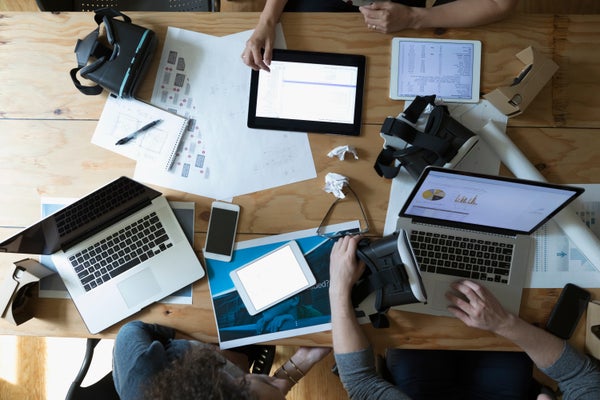This article was published in Scientific American’s former blog network and reflects the views of the author, not necessarily those of Scientific American
Two friends of mine each recently went on vacation. One started months in advance with a multi-page first draft, complete with potential train times and color coding to indicate UNESCO World Heritage sites. The other left for their ten-day trip to a country where they did not speak the language with only plane tickets and a hotel reservation for the first night in hand. Both had excellent trips, and both would have likely experienced anxiety to the point of breaking out in hives if asked to operate based on the other’s plan. And as entertaining as it is to imagine these two bookends of the planning spectrum making a joint trip to Machu Picchu, imagining the far likelier scenario of them having to work together in a professional or academic setting is less fun. And for all that can be said about learning to recognize the needs of others in a group, some attention needs to go to learning to recognize and embrace our own cognitive needs as part of that process.
It’s far too common for people witness someone getting steamrolled in what is meant to be a collaborative team. Whether it is the colleague whose team fails to understand that waiting until two days before the deadline to start work can be more stressful than the presentation itself, or the student who cannot understand why his team prefers to all search for bugs in the code on the same screen rather than working independently, individuals will differ in their preferred processes. And any number of what should be reasonable differences are amplified by the self-doubt that comes with finding yourself unserved by a process that seems to be working for the rest of the group. It’s that voice that loves to say, “maybe it’s just me,” and keeps you from speaking up for fear of appearing unreasonable. But taking stock of how you think and how you process information isn’t just reasonable, it’s so reasonable it has its own discipline: metacognition.
Metacognition refers to your understanding and awareness of your own thought processes – thinking about the way you think, learn, and process information. Your metacognitive processes are also what allow you to control your cognitive activities. They are what help you recognize that you need to read that paragraph again or make a note in your calendar. When your metacognitive processes fail, that is when you fall short on an exam you thought you aced or have memories of someone being at an event that they never attended. You become uncertain of your certainty. Taking the time to observe and study your own metacognitive processes, and find your own shortcomings, can help guide your future decisions. Maybe you are far more successful if you take a particular type of notes, have a chance to rehearse out loud, practice in front of someone, practice alone, or read a book after lecture instead of before. You can learn to identify the processes that work best for you, and perhaps make it easier to speak up when your own process is being denied.
On supporting science journalism
If you're enjoying this article, consider supporting our award-winning journalism by subscribing. By purchasing a subscription you are helping to ensure the future of impactful stories about the discoveries and ideas shaping our world today.
You can also look for the other aspects of yourself that shape those processes beyond cognition. You can assess and reflect on how comfortable you are with risk and what makes it more palatable. Determine whether you are more willing to ask questions as you learn something or after you have a certain level of baseline knowledge. Figure out how much time you need to accomplish a certain kind of task, and then determine how to ensure that you use that time properly once it has been set aside.
While this may not be a convenient, 10-step solution to better collaboration, it can be a first step in celebrating each of our processes – however counterintuitive they may seem to someone else. I am a planner. Thanksgiving dinner for twenty people in a small apartment kitchen resulted in a spreadsheet scheduling the use of each of our burners and pots and pans. Our child’s baby book has a year-long Gantt chart of sleep treasured with the same sentimentality as a newborn footprint. But happily embracing the quirks of my own process also has to come with the acknowledgement of the processes of those around me. As members of a team, we can work towards a social metacognition and be aware and knowledgeable about the cognitive work everyone else is doing. Can a piece of the work be broken off for the person who is stifled by group brainstorming? Can the group have an honest discussion about how long they need to prepare, study, practice, or read to be confident in the result? If the person with the best analytical eye gets sloppy when stressed for time, how much should the rest of the group push up their own work to take advantage of those skills? When there isn’t one right way to do things, it gets easier to discuss potential paths to a best way forward.
